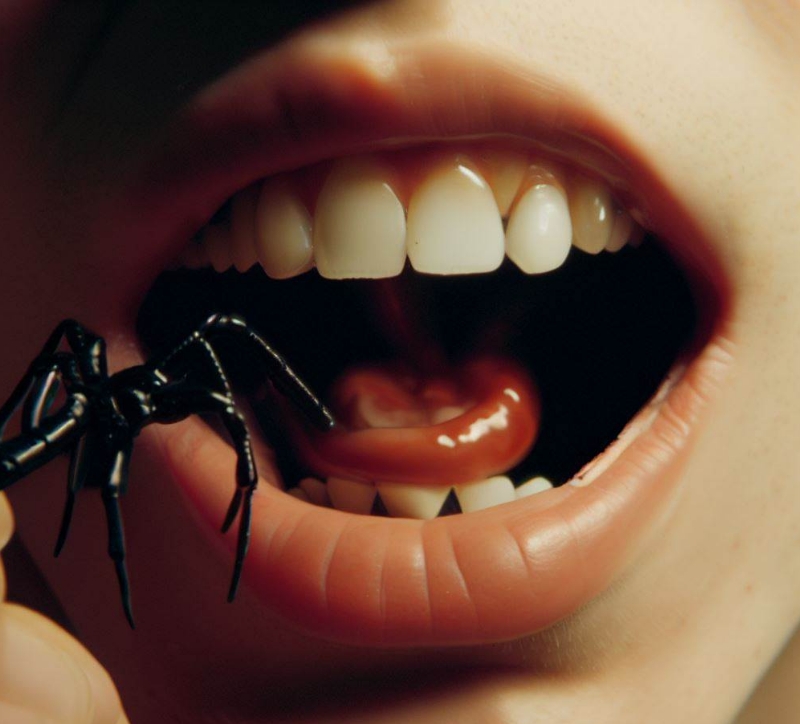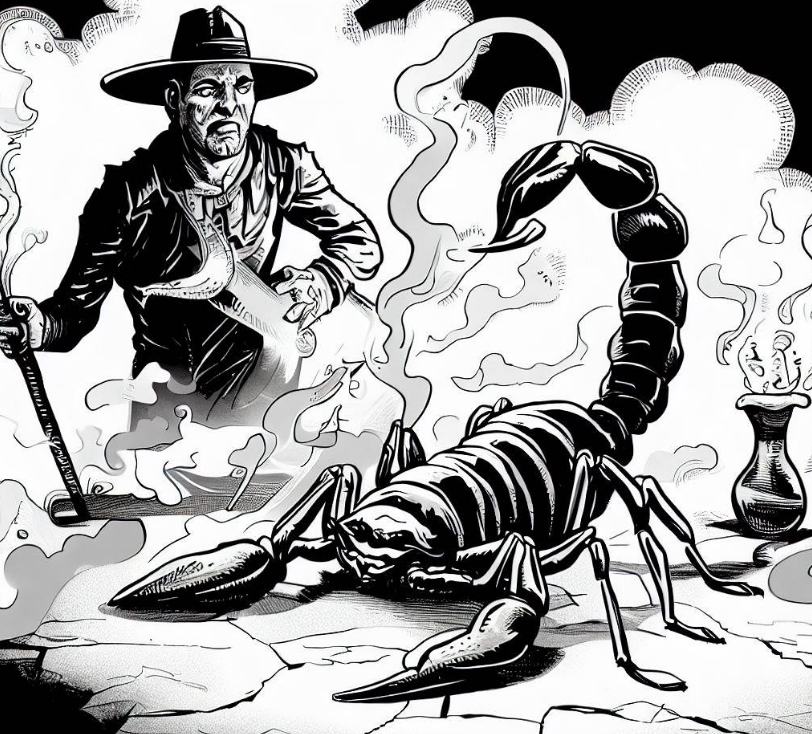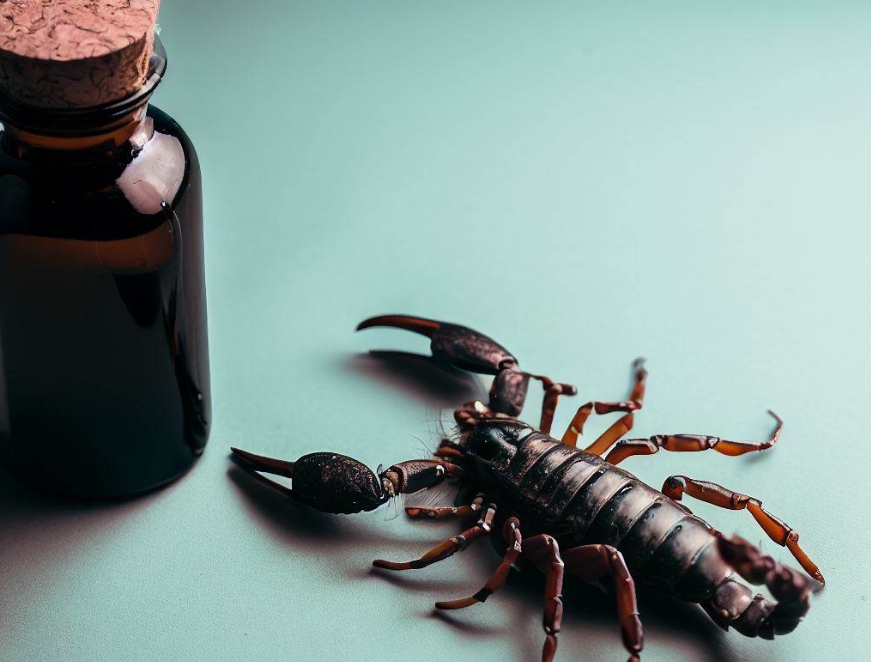If you’re here, you might be wondering, “What happens if you eat a black scorpion?” It’s a bizarre question, but one that has piqued the curiosity of many. In this article, we’ll dive into the world of black scorpions, their venom, and the potential consequences of consuming one. So, buckle up for an exciting, informative, and slightly unnerving journey.
A Closer Look at Scorpions
Contents
Before we dive into the main course (pun intended), let’s get to know scorpions a little better. Scorpions are not insects, but rather arachnids, closely related to spiders and ticks. They are also related to lobsters, thanks to their exoskeleton and jointed appendages. Interestingly, scorpions have a variety of adaptations that help them thrive in their environments, such as their clear scorpions ability to blend into their surroundings.
There are over 2,000 known scorpion species, but the one we’re interested in today is the black scorpion. These creatures can be found in various locations, from the arid deserts of the Middle East to the lush rainforests of Asia. Some popular examples include the Asian forest scorpions and the desert scorpions.
The Venomous Bite
The most infamous feature of scorpions is, of course, their venom. Scorpions store venom in a gland located in their telson – the tip of their tail – which they use for hunting prey and self-defense. The potency of the venom varies between species, but it can be quite valuable. In fact, scorpion venom can be worth thousands of dollars per ounce!
While most scorpion stings are not life-threatening to humans, some species’ venom can cause severe symptoms or even death. A scorpion sting requires proper treatment to avoid complications. The black scorpion’s venom, in particular, can lead to extreme pain, muscle cramps, and difficulty breathing.
So, What If You Eat One?
Now, let’s address the main question: what happens if you eat a black scorpion? Here’s a step-by-step guide to the potential consequences.
Step 1: Preparation
First, consider how the scorpion is prepared. In some cultures, scorpions are considered a delicacy and are often fried or roasted. Cooking the scorpion will denature the proteins in the venom, rendering it harmless. If you’re consuming a cooked black scorpion, you’ll likely be fine.
However, if you’re eating a raw black scorpion, things could get interesting. The venom gland and stinger must be carefully removed to avoid ingesting venom. Failure to do so could lead to an unpleasant experience (more on that later).
Step 2: Digestion
Assuming you’ve removed the venom gland and stinger, the next step is digestion. As you chew and swallow the black scorpion, your body’s enzymes will start breaking down its exoskeleton and other tissues. While this process may be slightly uncomfortable due to the scorpion’s tough, chitinous exoskeleton, it’s generally safe. In fact, scorpions are a source of protein and other nutrients, making them a viable food source in certain situations.
Step 3: The Aftermath
If you’ve successfully removed the venom gland and stinger and managed to chew and swallow the scorpion, congratulations! You’ve just consumed a black scorpion, and you’re likely to experience no adverse effects. However, if you ingested some venom along the way, things could take a different turn.
Ingesting scorpion venom is not the same as being stung by one, as the venom is not being directly injected into your bloodstream. Instead, it’s passing through your digestive system. While this might reduce the severity of the symptoms, it’s still not an enjoyable experience. You may experience pain, cramping, nausea, and vomiting as your body tries to rid itself of the venom.
In rare cases, ingesting a significant amount of venom could lead to more severe symptoms, such as difficulty breathing, convulsions, and potentially even death. However, this is highly unlikely unless you consume multiple venomous black scorpions without proper preparation.
A Word of Caution
While eating a black scorpion might make for an interesting story, it’s not something to be taken lightly. If you’re considering trying this unusual dish, ensure that the scorpion is properly prepared, and the venom gland and stinger are removed. This will help you avoid the unpleasant and potentially dangerous consequences of ingesting scorpion venom.
If you’ve already eaten a black scorpion and suspect that you’ve ingested venom, it’s essential to seek medical attention immediately. While most cases are not life-threatening, it’s always better to err on the side of caution and receive proper treatment.
Conclusion
So, what happens if you eat a black scorpion? In short, if the scorpion is cooked or the venom gland and stinger have been removed, you’ll likely be fine. However, if you consume the venom, you may experience a range of unpleasant symptoms, from pain and nausea to difficulty breathing and convulsions. While eating a black scorpion might be a unique culinary adventure, it’s crucial to approach it with care and respect for these fascinating creatures.
FAQ About Eating a Black Scorpion
Q: Can you eat other types of scorpions?
A: Yes, you can eat other types of scorpions, but the same precautions apply. Ensure that the scorpion is cooked or has its venom gland and stinger removed before consumption. Some popular edible scorpion species include the Asian forest scorpion and the emperor scorpion.
Q: Are there any benefits to eating scorpions?
A: Scorpions can be a source of protein and other nutrients, making them a viable food source in certain situations. In some cultures, scorpions are considered a delicacy and are believed to have medicinal properties. However, more research is needed to support these claims.
Q: How do you remove the venom gland and stinger from a scorpion?
A: To remove the venom gland and stinger, use a sharp knife or scissors to carefully cut off the telson (the tip of the scorpion’s tail) where the venom gland is located. Be cautious not to squeeze the gland, as this could release venom.
Q: How do you cook a scorpion?
A: Scorpions can be cooked in various ways, including frying, roasting, or even boiling. Popular methods include deep-frying scorpions in oil or roasting them on skewers over an open flame. Cooking the scorpion will denature the proteins in the venom, rendering it harmless.
Q: Is it legal to eat scorpions?
A: The legality of eating scorpions varies by location. In some countries, scorpions are considered a delicacy and can be found in markets or restaurants. However, in other places, there may be restrictions or regulations related to the consumption of scorpions. It’s essential to research local laws before consuming scorpions.
Q: Are there any ethical concerns related to eating scorpions?
A: As with any consumption of living creatures, ethical concerns may arise. Some people may object to the consumption of scorpions due to animal welfare concerns or a desire to protect these unique species. It’s crucial to consider your personal values and beliefs when deciding whether or not to eat a scorpion.




